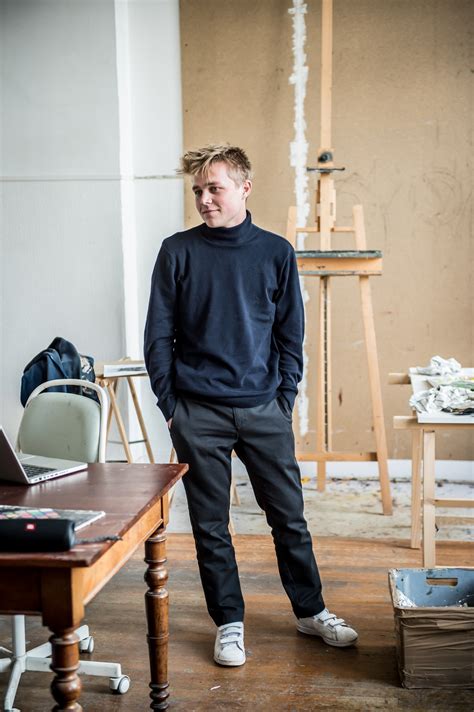A Quote by Ali Smith
Every great narrative is at least two narratives, if not more - the thing that is on the surface and then the things underneath which are invisible.
Related Quotes
Now, the world is more than it seems to be. You know this, of course, because you read stories. You understand that there is the surface and then there are all the things that glimmer and shift underneath it. And you know that not everyone believes in those things, that there are people—a great many people—who believe the world cannot be any more than what they can see with their eyes. But we know better.
Narrative Collapse is what happens when we no longer have time in which to tell a story. Remote controls and DVRs give us the ability to break down narratives - particularly the more abusive ones. This is a great thing for escaping the 'ends-justify-the-means' traps of 20th-century wars and religions, but it can also make it hard to convey values.
It is however, difficult to make your narratives relative by yourself. A novelists' work is to provide models to make your narratives relative. If you read my novels then you may feel, "I have the same experience as this narrative", or "I have the same idea as this novel". It means that your narrative and mine sympathize, concord and resonate together.
Let there be two possible things, A and B, one of which is such that it is necessary that it exists, and let us assume that there is more perfection in A than in B. Then, at least, we can explain why A should exist rather than B and can foresee which of them will exist; indeed, this can be demonstrated, that is, rendered certain from the nature of the thing.
I like playing the social convention. If you're in a period drama, there's always something dancing underneath the surface as a human - but then you always have to conform to the social conventions around you, and those two things get to be juxtaposed against each other. You're being human, but you're trapped within the social convention of the time.
I think we all are born inside of our parents' narratives. We stay there for a good while. We are taught their narratives about everything: their marriage, the world, God, gender, identity, etcetera. Then, at some point, our own narrative develops too much integrity to live inside that story. We don't ever fully escape it, but we move into our own stories.
Fear in sooth holds so in check all mortals, becasue thay see many operations go on in earth and heaven, the causes of which they can in no way understand, believing them therefore to be done by power divine. for these reasons when we shall have seen that nothing can be produced from nothing, we shall then more correctly ascertain that which we are seeking, both the elements out of which every thing can be produced and the manner in which every thing can be produced in which all things are done without the hands of the gods.
The great thing about the dilemma we're in is that we get to re-imagine every single thing we do...There isn't a single thing that doesn't require a complete remake. There are two ways of looking at that. One is: Oh my gosh, what a big burden. The other way, which I prefer, is: What a great time to be born! What a great time to be alive! Because this generation gets to essentially completely change the world.





































